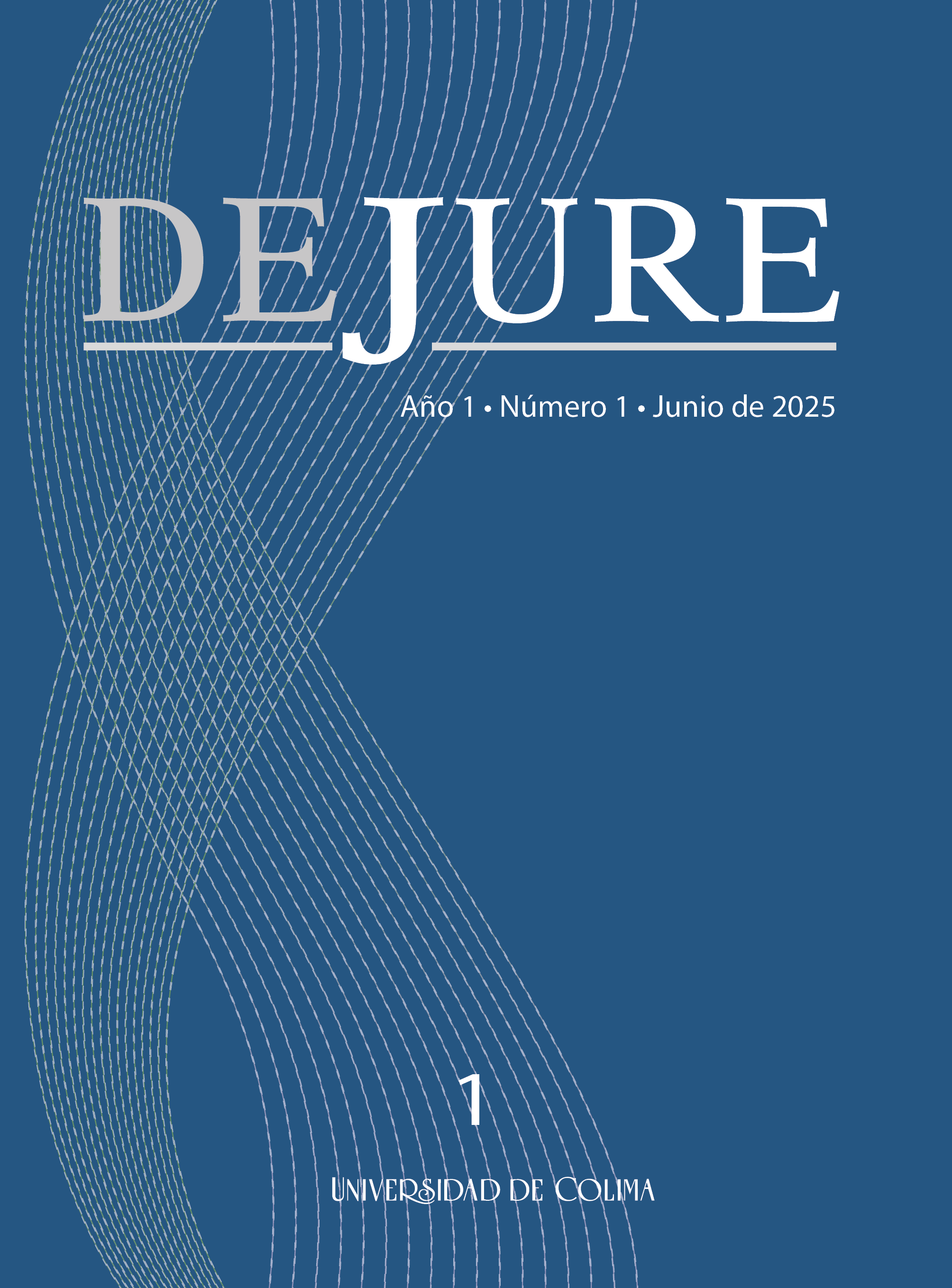The Ontological Cry of Ethics in the Colima University Horizon on the 21st Century
Keywords:
ethics, law, morality, ontology, University of ColimaAbstract
The core of this text was presented at the Dissertatio of the Lectio prima (Inaugural Session of the School Year, also known as Lectio brevis) on February 4, 2005, in the Auditorium of the Faculty of Law at the University of Colima, Mexico. This article develops the ideas presented there, moving from the oral nature of the dissertation to a written version, which records a qualitative investigation of documentary sources using a hermeneutic-critical analysis method. The problem is the loss of an ontological basis for Ethics in the evolution of Western currents of thought, and how this has affected Ethics and Law, especially in postmodernism, whose dominant nihilism has emptied the notions of ethics and law. Finally, the article proposes, as a contribution to the search for a solution, some paths to recovering the ontology of Ethics and its relationship with Law in the academic life of jurists in the Faculty of Law in the 21st century.
Downloads
References
Bauman, Z. (2009). Ética posmoderna. Siglo XXI.
Bell, D. (1994). Las contradicciones culturales del capitalismo.Patria.
De la Mora, R. (2005). Breve Historia del pensamiento político. De Platón a Rawls. Universidad de Colima.
Hegel, G. (1975). Filosofía de Derecho. Universidad Nacional Autónoma de México.
Hernández, F. R. (2001). Las tres hijas de la razón: las post-modernidades. Sociedad y Utopía (17) 17-34.
Kelsen, H. (2000). Teoría Pura del Derecho. Porrúa.
Kelsen, H. (2001). ¿Qué es la Justicia? Fontamara.
Kunz, J. L. (1948). La Teoría Pura del Derecho. Imprenta Universitaria.
l, J. (s.f.).
Lyotard, J. F. (2005). La posmodernidad (explicada a losniños). Gedisa.
Lyotard, J. F. (2006). La condición posmoderna. Cátedra.
Moreno, L. (2024). El giro del objetivismo al subjetivismo kantiano. Viraje de la epistemología moderna: la existencia fundante-predominante del sujeto y la disolución del objeto. Sincronía. Revista de Filosofía, Letras y Humanidades, 28(85) 316-346. https://revistasincronia.cucsh.udg.mx/index.php/sincronia/article/view/21/14
Müller, F. &. (2009). Positivismo. Revista De Las Cortes Generales, 78, 101-109. https://doi.org/10.33426/rcg/2009/78/165
Oñate, T. (1998). Introducción. En G. Vattimo, La sociedad Transparente (pp. 38-39). Paidos.
Pérez Valera, V. M. (2003). Relación entre Moral y Derecho. Jurídica. Anuario del Departamento de Derecho de la Universidad Iberoamericana (33) 211-221 http://historico.juridicas.unam.mx/publica/librev/rev/jurid/cont/33/pr/pr13.pdf
Ricken, F. (1987). Ética general. Herder.
Ulpiano. (533). Digesto 1,1,1.
Vattimo, G. (1987). El fin de la modernidad. Nihilismo y hermenéutica en la cultura posmoderna. Gedisa.
Vattimo, G. (2010). Adiós a la verdad. Paidos.
Zea, L. (2011). El positivismo en México: nacimiento, apogeo y decadencia. Fondo de cultura económica.
Published
How to Cite
Issue
Section
Categories
License
Copyright (c) 2025 Luis Moreno Diego

This work is licensed under a Creative Commons Attribution-NonCommercial-ShareAlike 4.0 International License.
De Jure permite distribuir, remezclar, adaptar y crear a partir del material en cualquier medio o formato, únicamente con fines no comerciales y siempre que se le dé crédito al creador. Si remezcla, adapta o crea a partir del material, debe licenciar el material modificado bajo términos idénticos. CC BY-NC-SA, incluyendo los siguientes elementos:
BY: se debe dar crédito al creador.
NC: Solo se permiten usos no comerciales de la obra.
SA: Las adaptaciones deben compartirse bajo los mismos términos.



